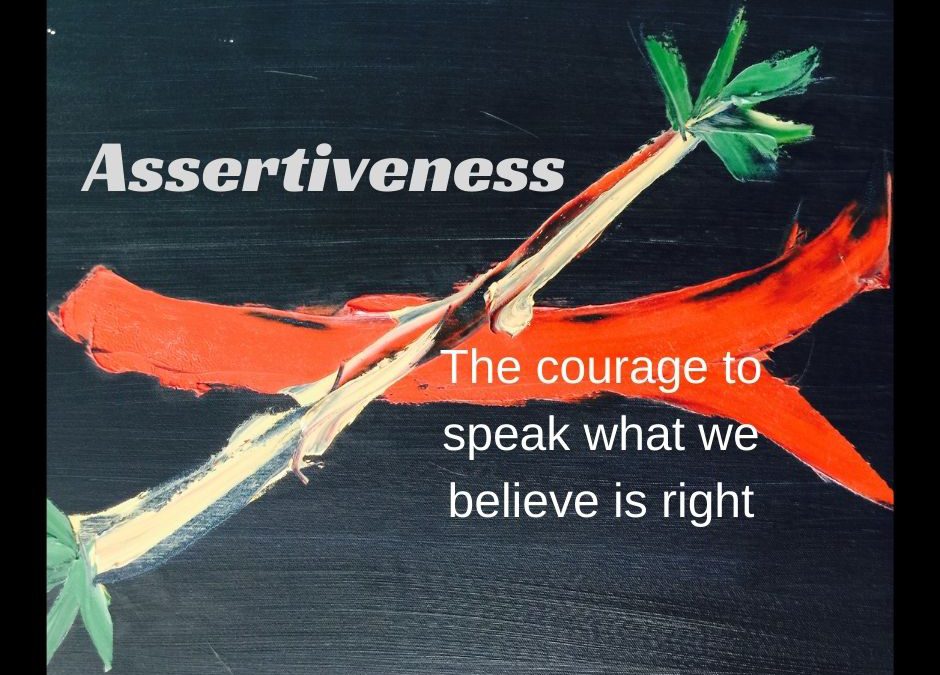
Certitude
Description
Certitude is the virtue of unwavering faith and confidence, a firm inner knowing that guides our actions with purpose and conviction. It begins with a thoughtful exploration of truth through reflection, prayer, or contemplation and blossoms into clarity. Once we discern what is right, certitude enables us to act boldly and decisively, trusting our chosen path.
This virtue empowers us to live by principles rather than being swayed by fleeting trends or external pressures. It calls us to listen to a higher purpose and align our lives with enduring values. Certitude doesn’t mean we never face challenges or doubts; instead, we meet them with steadiness, using them as stepping stones instead of stumbling blocks. Even when circumstances are uncertain or outcomes are unclear, certitude keeps us grounded, reminding us of the deeper truths we hold.
In practice, certitude is about making confident choices, persevering in the face of difficulties, and moving forward with faith that everything will unfold as it should. It is a virtue for every walk of life, guiding us to be steadfast in our relationships, diligent in our work, and resilient in the pursuit of our dreams. Through certitude, we cultivate an inner strength that shines outward, inspiring others with our calm assurance and clear sense of direction.
Affirmations for Acceptance
1. I trust in my ability to discern the truth.
This builds confidence in your judgment and strengthens your resolve to act with clarity.
2. I align my actions with my deepest values.
Living according to your principles reinforces a sense of purpose and direction.
3. I embrace uncertainty as part of my journey.
Acknowledging uncertainty helps you move forward with faith rather than hesitation.
4. I release the need to control every outcome.
Letting go of control allows you to trust the process and focus on what truly matters.
5. I courageously step forward even when the path is unclear.
Taking action despite uncertainty builds resilience and affirms your belief in the journey.
6. I am guided by a higher purpose and deeper wisdom.
Recognizing a source of guidance beyond yourself strengthens your commitment to what you believe is right.
7. I view setbacks as opportunities to learn and grow.
Focusing on your own journey rather than comparing it to someone else’s can enhance your acceptance of where you are.
8. I trust that each decision I make brings me closer to my true purpose.
Believing in the significance of your choices helps you stay grounded and confident.
9. I act as if success is sure, knowing that faith fuels my steps.
Behaving with certainty creates momentum and positive energy for achieving your goals.
10. I hold onto what is true, even when others may not see it.
Staying true to your convictions fosters integrity and inner strength in facing external pressures.
Quotes
“Faith is taking the first step even when you don’t see the whole staircase.” — Dr. Martin Luther King Jr.
“When you know yourself, you are empowered. When you accept yourself, you are invincible.” — Tao Te Ching
“Trust in the Lord with all your heart and lean not on your own understanding; in all your ways submit to him, and he will make your paths straight.” — Proverbs 3:5-6, The Bible
Certitude In Family Life
Certitude in family life is the shared belief in and commitment to guiding principles that provide clarity, direction, and purpose. It begins with parents modeling trust in their values and decisions, creating a home environment grounded in consistency and moral integrity. Certitude gives families the confidence to face life’s challenges with faith, knowing they are navigating together based on what is fitting and meaningful.
For parents, certitude means leading with conviction, trusting in their parenting choices, and acting confidently even in the face of uncertainty. It involves reflecting deeply on their values, communicating them clearly, and staying steadfast in their actions so that children see an example of unwavering commitment.
Certitude is nurtured in children through a sense of security and trust in their family’s guidance. They learn to develop confidence in their abilities and decisions by observing their parents’ courage and clarity. Children’s certitude grows as they are encouraged to reflect, act with purpose, and trust in their own path, knowing they have a strong foundation of support.
Families living with certitude cultivate resilience, trust, and a shared sense of purpose. Together, they navigate life’s uncertainties with faith and strength, creating a home filled with stability and mutual confidence.
Balancing Certitude
Certitude, when in balance, fosters confidence, clarity, and trust within the family. It encourages parents and children to act with conviction while remaining grounded in shared values. However, if certitude becomes overly rigid or uncertain, it can lead to inflexibility or self-doubt. Balancing certitude with complementary virtues ensures it remains a constructive force, guiding families with faith and resilience.
-
-
-
Humility: Humility tempers certitude by reminding us to remain open to learning and the perspectives of others.
-
Flexibility: Flexibility ensures certitude does not become rigidity, allowing families to adapt to changing circumstances.
-
Patience: Patience balances certitude by encouraging calm perseverance, especially when clarity takes time to emerge.
-
Empathy: Empathy softens certitude by fostering understanding and connection, ensuring decisions are considerate of others’ needs.
-
Discernment: Discernment enhances certitude by guiding thoughtful reflection before taking action.
-
Resilience: Resilience complements certitude by encouraging perseverance in the face of setbacks without losing confidence.
-
Respect: Respect balances certitude by acknowledging the autonomy and beliefs of others, even when they differ.
-
Gratitude: Gratitude grounds certitude in appreciation for the journey, keeping it from becoming a pursuit of perfection.
-
Moderation: By encouraging measured actions, moderation ensures that certitude does not lead to overconfidence or rash decisions.
-
Trust: Trust reinforces certitude by promoting faith in others and in the process, reducing the need for control.
-
-
Maintaining a balance of virtues ensures that certitude remains a positive force in family life. It fosters confidence and purpose while nurturing adaptability, understanding, and connection. For parents and children, the interplay of virtues supports a harmonious environment where everyone can grow with assurance, compassion, and wisdom. Families cultivate resilience and trust through this balance, creating a foundation of mutual support and shared values.
Joe is a husband, father, grandfather, author, speaker, educator, course creator, and parent/family coach.
He helps parents develop unity, find clarity, communicate, and develop consistency in their parenting with the Four C’s of Successful Families. You can find his work on social media.
In addition, the Four C’s newsletter is enjoyed by many as it encourages parents to self-care, build their relationships with their partners, and raise their children.
And he loves to golf!





